-
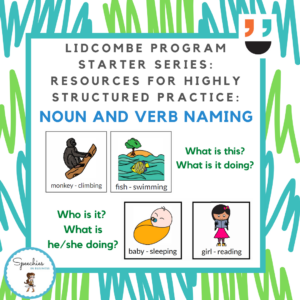
$5.99 including GST
With the Lidcombe Program for childhood stuttering, our first goal, usually, is to eliminate or virtually eliminate the child’s stuttering in ‘structured activities’ at home (early Stage 1). By ‘structured activities’, we mean that we set up the sessions deliberately in a way to get the child as fluent as possible, as quickly as possible, for 10-15 minutes a day.
The resource is designed for face-to-face sessions and devices, and is suitable for highly structured practice. The questions used in this resource are aligned with Blank’s First Level of Questioning and are thus suitable for most preschoolers and young school-age children.
-
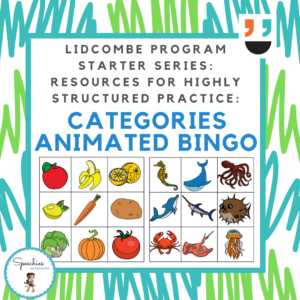
$5.99 including GST
With the Lidcombe Program for childhood stuttering, our first goal, usually, is to eliminate or virtually eliminate the child’s stuttering in ‘structured activities’ at home (early Stage 1). By ‘structured activities’, we mean that we set up the sessions deliberately in a way to get the child as fluent as possible, as quickly as possible, for 10-15 minutes a day.
The resource is designed for face-to-face sessions and devices, and is suitable for highly structured practice.
-
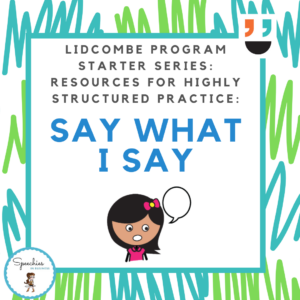
$5.99 including GST
With the Lidcombe Program for childhood stuttering, our first goal, usually, is to eliminate or virtually eliminate the child’s stuttering in ‘structured activities’ at home (early Stage 1). By ‘structured activities’, we mean that we set up the sessions deliberately in a way to get the child as fluent as possible, as quickly as possible, for 10-15 minutes a day.
The resource is designed for face-to-face sessions and devices, and is suitable for highly structured practice. The questions used in this resource are aligned with Blank’s First Level of Questioning and are thus suitable for most preschoolers and young school-age children.
-
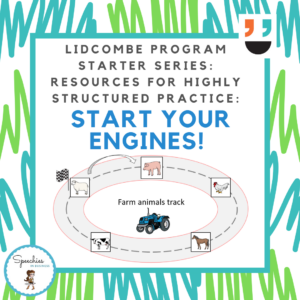
$5.99 including GST
With the Lidcombe Program for childhood stuttering, our first goal, usually, is to eliminate or virtually eliminate the child’s stuttering in ‘structured activities’ at home (early Stage 1). By ‘structured activities’, we mean that we set up the sessions deliberately in a way to get the child as fluent as possible, as quickly as possible, for 10-15 minutes a day.
In this 23-page resource, we include 20 race tracks, each featuring a vehicle to ‘go around’ a race track including five pit stops, each with high frequency words in an early developing category.
It is suitable for a range of expressive language tasks including single word naming, attribute naming (e.g. ‘What colour is this?’, ‘Where would I find this?’) and semantic feature analysis (e.g. ‘What would you do with this?’, ‘What can this one do?’).
-
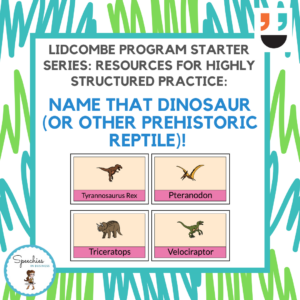
$5.99 including GST
With the Lidcombe Program for childhood stuttering, our first goal, usually, is to eliminate or virtually eliminate the child’s stuttering in ‘structured activities’ at home (early Stage 1). By ‘structured activities’, we mean that we set up the sessions deliberately in a way to get the child as fluent as possible, as quickly as possible, for 10-15 minutes a day.
Many preschoolers are fascinated by dinosaurs. In this 17-page resource, we use this common interest to help families practice smooth talking with many unfamiliar, polysyllabic words: the names of dinosaurs.
In this exercise, you will ask your child to name a dinosaur smoothly that you have just named. Many dinosaurs have polysyllabic names, so this exercise is a little bit harder for many children who stutter than simply repeating single or two syllable words (like ‘car’ or ‘table’).





